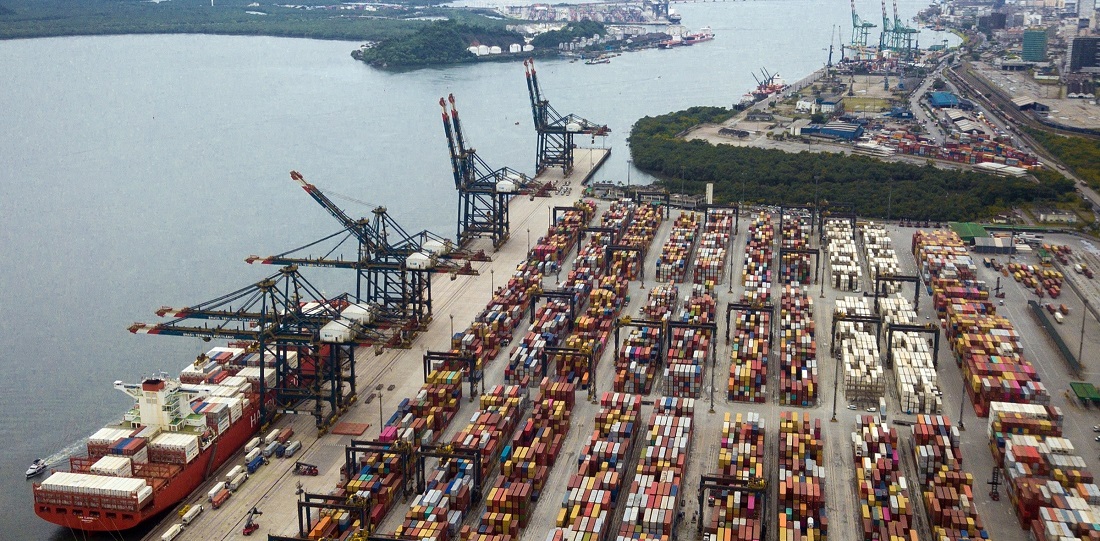
Tariff reduction increases the competitiveness of the Port of Santos
Apr, 14, 2022 Posted by Gabriel MalheirosWeek 202215
The Ministry of Infrastructure estimates a 20% tariff reduction in the values charged at the Port of Santos after privatization and an “efficiency enhancement,” which may affect the competitiveness of the Santos port in comparison to other port complexes in the country. In other words, Santos may attract more businesses since these fees influence the entire import and export chain and affect the ultimate price of the items.
However, the pending question is whether the tariff reduction at Santos will actually take place and under which basis, given that the current tariff structure went into effect only last month with 13.2% in readjustments permitted by the National Waterway Transportation Agency (Antaq). Companies can opt for alternative ‘cheaper’ ports to convey their cargo if the Federal Government’s prediction comes true and costs do indeed rise.
“Any increase or reduction in the tariffs charged by the port always generates ripple effects on the user’s costs, meaning that tariffs can either bring good imports up or down and affect the competitiveness of exported products,” says Sérgio Aquino, director-president of the National Federation of Port Operators (Fenop).
Ivam Jardim of Agência Porto Consultoria, a port consultant, believes that tariffs will decrease with the privatization of the Port of Santos but notes that the data made public so far is not enough to affirm such a conclusion.
According to Ivam, the privatization plan published by the government includes a range of investments for the new concessionaire. “The tariff must be high enough to compensate for these investments. The government predicts that privatization will allow for tariff reduction, which tenants believed are overpriced due to top-down communication.”
Different tariffs
The tariffs paid by shipowners and cargo operators to the Santos Port Authority (SPA) compensate for the costs derived from the maintenance of the port’s infrastructure. Tariffs will now be charged by the company that takes over the port management after privatization.
Each port in Brazil had a different way of charging fees. Antaq is standardizing the form of billing, and SPA has already bought into the new tariff table. In addition to increased charges, other changes were approved.
There are three tariff tables, explains Sérgio Aquino. The first refers to charges levied on shipowners to use the waterway infrastructure and transit through navigation channels. It functions as a toll on the road. Previously, the tariffs were calculated based on the volume of cargo handled. Instead, each vessel will pay a charge calculated based on its size, capacity, and whether it is full or empty from this month onwards.
The second tariff table provides for charges levied on shipowners based on their point of attraction, a linear meter amount calculated through the occupancy of the quay. The bill depends on the type of cargo and where the vessel is moored.
Table three focuses on the operation: loading and unloading of containers, bulk, etc. For each type of cargo, there is a value per ton or unit handled in the case of a container. Who pays is the port operator, unless it is in a contract between the parties that the shipowner must also pay.
Source: A Tribuna
To read the full original article, please go to: https://www.atribuna.com.br/noticias/portomar/reducao-de-tarifas-aumenta-competitividade-do-porto-de-santos
-
Meat
Jul, 10, 2024
0
Brazil chicken exporters enjoy less US competition, strong Mideast demand
-
Ports and Terminals
Jul, 01, 2021
0
Ship maneuvers normalized at Itajaí and Navegantes after subtropical storm ‘Raoni’ threat passed
-
Apr, 06, 2023
0
European and Brazilian police bust cocaine ring involving Bolivia, Paraguay, Brazil ports
-
Shipping
Dec, 06, 2019
0
Brazil reelected as member of IMO Council



